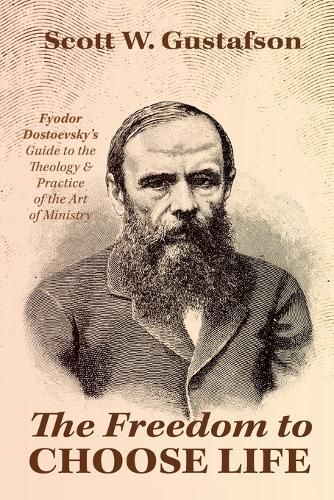Readings Newsletter
Become a Readings Member to make your shopping experience even easier.
Sign in or sign up for free!
You’re not far away from qualifying for FREE standard shipping within Australia
You’ve qualified for FREE standard shipping within Australia
The cart is loading…






This title is printed to order. This book may have been self-published. If so, we cannot guarantee the quality of the content. In the main most books will have gone through the editing process however some may not. We therefore suggest that you be aware of this before ordering this book. If in doubt check either the author or publisher’s details as we are unable to accept any returns unless they are faulty. Please contact us if you have any questions.
In The Brothers Karamazov, Fyodor Dostoevsky proposes ministry as the way to resist and overcome the world's evil. He employs two plotlines to do so. The action plot concerns the events surrounding the murder of Fyodor Karamazov. All evidence points to Dmitri Karamazov. Rational, circumstantial evidence convicts him; yet the reader knows he is innocent. The ministry plot occurs in this dark context where "small acts of love" are performed by The Elder Zosima, Alyosha Karamazov, and many others. These acts of love all answer this unspoken question, "What can be said and done in Jesus' name that opens the future to new possibilities in contexts heretofore deemed closed and without hope?" Asking and answering this question is the essence of ministry, and since the question can be asked in any context, ministry is possible anywhere. Dostoevsky's unabashed antisemitism, however, undermines his brilliant analysis. The concluding chapters document how unconfessed sins like antisemitism exert a death-dealing power that undermines our cultures, our communities, and our ministries. The Freedom to Choose Life shows how ministry resists and overcomes evil by these small acts of love and by the global effects of repenting of humanity's unconfessed sins.
$9.00 standard shipping within Australia
FREE standard shipping within Australia for orders over $100.00
Express & International shipping calculated at checkout
This title is printed to order. This book may have been self-published. If so, we cannot guarantee the quality of the content. In the main most books will have gone through the editing process however some may not. We therefore suggest that you be aware of this before ordering this book. If in doubt check either the author or publisher’s details as we are unable to accept any returns unless they are faulty. Please contact us if you have any questions.
In The Brothers Karamazov, Fyodor Dostoevsky proposes ministry as the way to resist and overcome the world's evil. He employs two plotlines to do so. The action plot concerns the events surrounding the murder of Fyodor Karamazov. All evidence points to Dmitri Karamazov. Rational, circumstantial evidence convicts him; yet the reader knows he is innocent. The ministry plot occurs in this dark context where "small acts of love" are performed by The Elder Zosima, Alyosha Karamazov, and many others. These acts of love all answer this unspoken question, "What can be said and done in Jesus' name that opens the future to new possibilities in contexts heretofore deemed closed and without hope?" Asking and answering this question is the essence of ministry, and since the question can be asked in any context, ministry is possible anywhere. Dostoevsky's unabashed antisemitism, however, undermines his brilliant analysis. The concluding chapters document how unconfessed sins like antisemitism exert a death-dealing power that undermines our cultures, our communities, and our ministries. The Freedom to Choose Life shows how ministry resists and overcomes evil by these small acts of love and by the global effects of repenting of humanity's unconfessed sins.